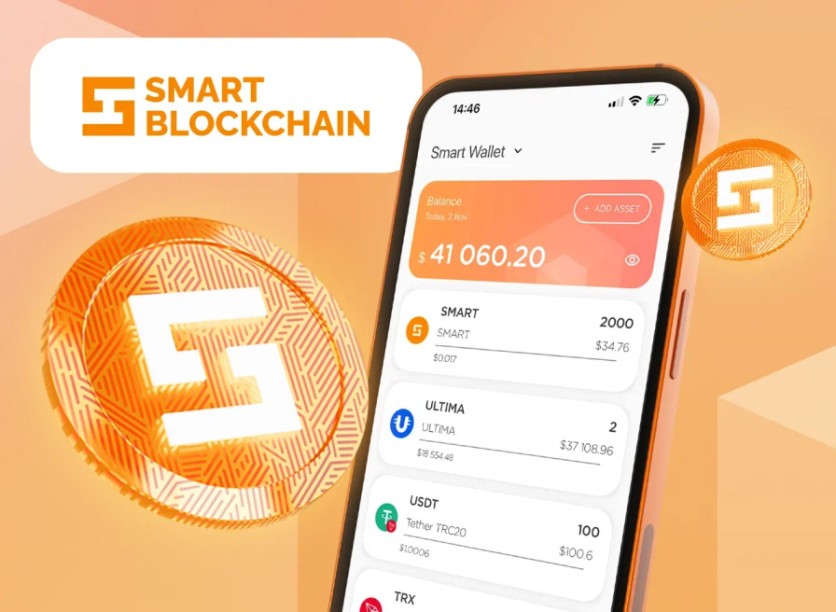
With new users flooding the world of cryptocurrencies and the turnover of crypto coins permanently increasing, the first wave of blockchains faced the challenge of scalability and slow transaction speeds. While the Bitcoin and Ethereum networks are trying to overcome this obstacle, an all-new blockchain called SMART blockchain is already providing a throughput of up to 2,000 transactions per second.
SMART blockchain was created taking into account the current infrastructure problems inherent in first-generation blockchains. Fast transactions in the SMART blockchain are written at the level of the main protocol and are not the result of add-ons. SMART blockchain is based on the Delegated Proof of Stake (DPoS) consensus algorithm. Now, the block confirmation speed in the SMART blockchain does not exceed 3 seconds. Such a throughput prevents transactions from accumulating in the mempool, and therefore, the weighted average transaction fee remains at one of the lowest levels among all existing blockchains, approximately $0.000005 per transaction.
The DPoS consensus algorithm also opens up the possibility for further scaling of the network amidst the influx of new users and the launch of decentralized applications. The current already impressive throughput is not a fixed ceiling and can be increased if necessary.
Decentralization is one of the main priorities of SMART blockchain. The network protocol provides for a daily change of validators responsible for packaging transactions into blocks and recording them in the blockchain. There are three types of nodes: a witness node, a full node, and a Solidity node. The nodes responsible for block creation are called super representatives. They pack transactions in blocks and send them to the blockchain. There are 27 super representatives in Smart Blockchain, and they change every six hours via users' votes. This dynamic approach ensures that Smart Blockchain's consensus mechanism remains decentralized and continually refreshed.
Like any other blockchain, the SMART blockchain uses its own coin, which ensures a fast flow of liquidity between products launched on the SMART blockchain. The SMART coin serves as the lifeblood of this network and is necessary to perform transactions and run smart contracts. SMART's total supply is set at 9,000,010,200,000 coins, with its supply limit capped at 100 trillion coins.
Transactions with SMART are made through the Smart Wallet, a cryptocurrency wallet that prioritizes intuitive user interfaces, high security, and anonymity. The Smart Wallet currently supports SMART, USDT, ULTIMA, and TRX, with plans to add other popular cryptocurrencies, such as BTC and ETH, in the future.
Users of Smart Wallet can create an unlimited number of wallets in various blockchains in just a couple of clicks and quickly switch between different cryptocurrencies, managing them from a single account.
The Smart Wallet is currently available for download in AppStore and PlayStore. The wallet offers a high level of security and anonymity, with the user's private keys encrypted and stored on the device and no KYC for basic features.
The number of active users of the SMART blockchain has already exceeded 2,000,000. These are users of numerous decentralized applications running on the SMART blockchain. Teams developing decentralized products choose SMART blockchain because it is a versatile platform to create and innovate. The network offers over 60 HTTP API gateways that enable developers to interact with full nodes and Solidity nodes. The SmartWeb JavaScript library simplifies the deployment of smart contracts and offers various functions, allowing developers to create decentralized applications, trade on DEXs, and more.
Rooted back to 2016, SMART Blockchain is a product of six years of work of a team of professional developers and entrepreneurs with over a decade of experience in IT and blockchain. SMART Blockchain's throughput, low level of transaction fees, and high anonymity and security open up new opportunities for the development of the blockchain industry and mass adoption of decentralized products.
ⓒ 2025 TECHTIMES.com All rights reserved. Do not reproduce without permission.




